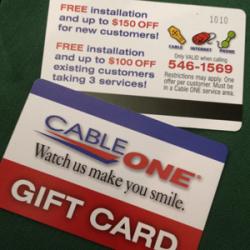
Today, I sat in a chamber of commerce event. Most chambers across the country conduct annual economic forums and this chamber was no different.
During the meeting today, there were three key observations that I had that reaffirmed why I do not like meetings like this.
When an event like this has a main sponsor (or a few of them) the sponsors have an opportunity to talk about themselves. So often, when attending events like this, I have to endure the sponsor droning on about how great they are and how many wonderful things they are doing.
I know they paid for the opportunity to speak, but do they have to read from their notes for five minutes? How about they say something funny and then say, “You’re not here to listen to me so, I’m done, enjoy!”
Usually, these types of events are designed to provide something of great value to the business community. Chambers of commerce are designed to help the business community as a whole and this particular chamber does a very good job at that. However, the sponsors only care about adding new customers to their lists.
One of the main sponsors provided a gift card for $150 (I won’t name their name, but you might be able to guess from the picture on this post.) When it was announced as a gift card, someone from the un-named company shouted, “For new customers.”
Rather than actually giving back like the chamber does, it was clear, they just wanted to offer a deal to gain new customers. Of course, they did have a deal for existing customers… if they bought new services.
So, it really wasn’t a gift card but an advertised deal (a coupon).
It prompted a tweet from me:
There is nothing that says, “We don’t care about current customers” more than having deals for new customers only.
Presentations are Boring
Presentations are not boring because of subject matter. They are boring because presenters are boring.
Sometimes I wonder if the presenters are intentionally trying to put the audience to sleep. Today, there were a few presentations where the slides were overly complicated and more reading from notes than looking at the audience. Some actually took a little time to look up from their notes when the concept was simple enough they could remember a few words ahead.
Passion doesn’t require notes, teleprompters or slides. It just requires an understanding of what you believe.
The Bright Side
The keynote address today was well done. In this case, the scheduled keynote presenter was stuck because of a cancelled flight. They tried to put him on Skype but that failed. However, the replacement speaker was well versed in the presentation and didn’t use notes at all which meant he looked at us the entire time. The slides were a bit complicated but he did a great job helping us focus on the important parts. The presentation had the potential of being boring because it was about economics (maybe my threshold is too low) but the presenter did a good job keeping the audience’s attention (including mine).
I think that the experience I had today shows that making a potentially boring presentation great is really an art. Most people don’t grasp that and fail to properly prepare.